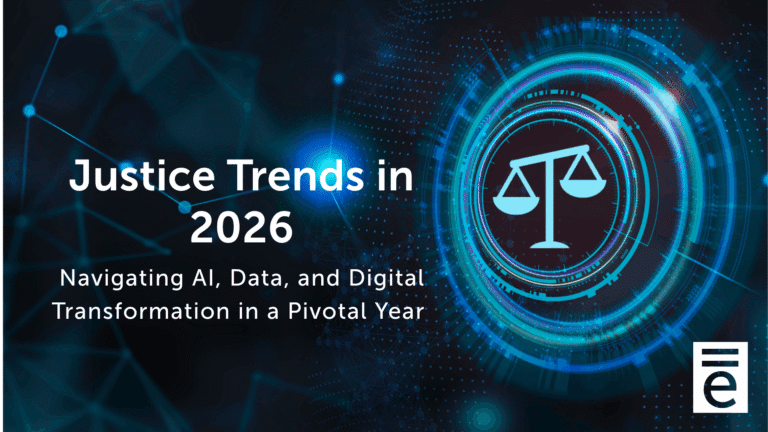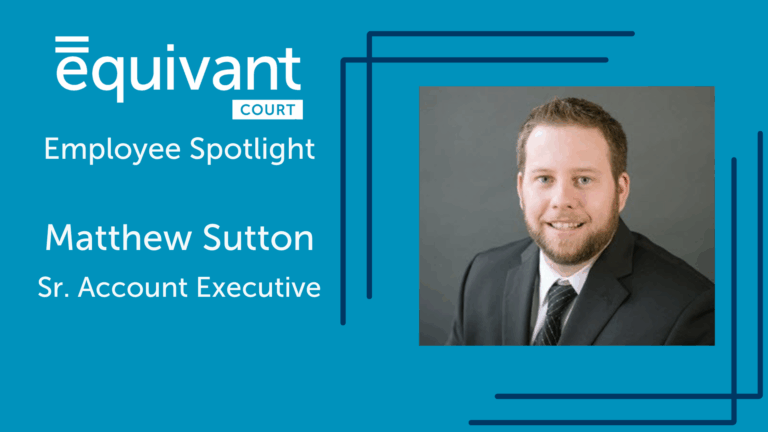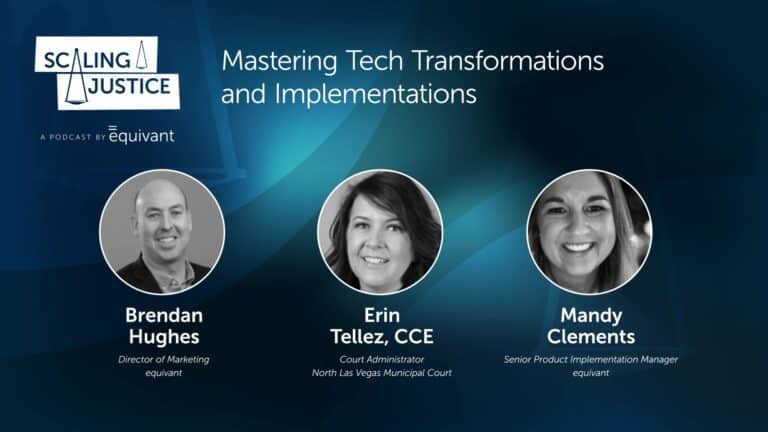Using Accurate, Actionable Data to Improve Decision-Making
Amy Bach, founder of the non-profit, Measures for Justice, lives by the motto: “You can’t change what you can’t see.” Illuminating the truth through data has been her life’s passion, and Amy works with agencies nationwide to make meaningful changes to promote justice. Hear stories about data research at MSJ and get advice on how your agency can start moving toward greater transparency and positive change.
This interview has been adapted and edited for length and clarity.
Understanding challenges in the justice system is difficult when there is a lack of data and/or data transparency. While there have been significant improvements in the data that’s been collected by justice agencies over the last several years, there is still plenty of work to be done.
We sat down with Amy Bach, founder of Measures for Justice, to discuss how data is being collected, the improvements that have been made, and what your agency can do to drive positive change by measuring justice.
Q: Your company has developed 32 Measures for Justice. What are some of the top measures? Which ones do you think are most meaningful?
A: I don’t want to say any are the most meaningful because certain measures are more meaningful to different people. For example, a prosecutor will find dismissal rates more meaningful as they examine cases that are getting dismissed. They’re going to want to determine if there’s a problem on the front end with the number of people being arrested, or if there’s a problem with the cases that are being developed.
One of my favorite measures is diversions. So, who’s getting a break? You can see in our data that white defendants get a break and are being diverted for the same crimes even though they have the same criminal backgrounds as others. There are also places where people in America who can’t afford a lawyer are convicted two or three times more often for the same drug crime. There’s that, plus people being jailed for failing to pay nominal bail.
These are important measures that show us how we treat people. When someone says they want to fix bail issues, how do you do that without data? It’s like trying to build a house in the air without a foundation. You have to understand whether people have attorneys, what the charges are, how many cases are dismissed, and how progress is being measured. All of that has to be done first if you want to fix something.
Q: We know that people do better out of jail. One of the challenges is collecting outcome-related data and determining where the holes are. What could we do to help plug the holes and connect the dots?
A: I think that we’re onto something here. It used to be that no one knew where the data was and what the methodology was. Because of that, people would say they couldn’t compare counties. Now, we have taken the time to go from county to county and find out what’s possible, while figuring out how to clean and code the data in a responsible way. There is an opportunity now for people to start using and creating change with the data.
We never tell people what changes need to happen. We just put the data out there in a neutral way. We see a lot in the data, including a lot that needs to be improved. There is now an opportunity for people to take the data, improve it, and use it to improve the system with fairness, fiscal responsibility, and public safety at the forefront.
Q: Data needs to be consistent and correct because it’s used in ways that affect whether someone gets a job, gets into school, gets the services they need, etc. How do we do a better job of making sure there aren’t missteps or disconnects in the data? Are you doing some of that?
A: We do go back and tell people if they ask. Ideally, we would go back to every state and provide them with a report whether they want it or not. We frequently get phone calls from a state or jurisdiction asking, “How can we pass a law in our state to get better data to make us do this?” So, there’s a wave. There was a law passed in Florida and a similar one in California. There’s a movement to pass laws in other states. I think that legislation is a big part of ensuring everyone is being consistent so that we avoid data missteps/disconnects. The challenge is that nobody wants to fund it. Everybody wants more grassroots funding groups to do advocacy work, which is incredibly important. But who’s going to do the structural?
Q: So, if you were given $10 million to fix the issues in a state associated with the criminal justice system, what would you do? What would your priorities be?
A: I’d probably come up with some goals. We’re working with a prosecutor now, and he wants to increase the number of diversions that he’s doing. He’s using our data to help him get there. I would tell people to set a goal, use the data, come back, and tell people you did it. Admit if you’ve made a mistake and explain how you will improve it. The data produces these beautiful conversations. I’d set a challenge up and say, “Come on everybody, let’s do this!”
Q: What advice would you give practitioners about exposing data missteps and then enacting programs in a different way going forward to ensure data is accurate and used correctly?
A: I think the best thing you can do is look at the data. Check in with yourself and the people around you and ask, “Why do you think this is?” If you don’t know how to change things, bring somebody in and ask how they would do it. Talk to your colleagues and create a path forward. No one has all the answers.
Everybody makes mistakes. If you are doing great, celebrate that—you deserve it! I think it’s about seeing the reflection and not fearing it. Use what you see to get more data so you can keep on doing better. In the end, the communities win. The practitioners win. It’s about creating this virtuous cycle of change. The motto of our organization is “no data, no change.” And I really feel that’s true. If you have data, you can get started and drive positive change.
Listen to the full interview, recorded in August 2020, on our Scaling Justice podcast.





